Alcohol Addiction Treatment Centers Find Recovery for Alcohol Abuse

Through aftercare planning, a patient and their treatment team can devise a realistic game plan that will help them remain accountable to and carry out their recovery goals. To qualify for COBRA, individuals must meet certain criteria to enroll in the program including having insurance that is covered by COBRA, undergoing a qualifying event (e.g. job loss) and be a qualified beneficiary. After treatment, individuals can join the RCA Alumni Association, for extra support during recovery. RCA staff make themselves available 24/7 to help provide individuals with care, and you can reach them any time by calling RECOVERY. Memorial Hermann Prevention and Recovery Center has both inpatient and outpatient options for teens ages 13 to 17.
Inpatient Alcohol Detox
NIDA offers education about addiction and has a special information section for parents or teachers. After a separation, your employer will inform you of your eligibility to maintain your insurance through COBRA and you’ll have 60 days to decide if you’d like to participate. However, your insurance will cost more than you previously paid as you’ll now be paying for the total premium instead of sharing the cost with your employer plus a 2% administrative fee.
- Depending on the state, there may be other requirements before the individual can be accepted into the free drug rehab treatment programs.
- However, in some cases, medical professionals may more strongly recommend an inpatient rather than an outpatient treatment setting based on their relative ability to more fully address patient treatment needs.
- By fostering a supportive environment, we help families navigate the challenges of addiction and recovery together.
Find a Rehab that is right for you or a loved one.
Our equine specialists conduct clinical process groups, speciality groups, and even therapeutic trail riding groups. With 14 horses housed in an on-site stable, patients can easily begin benefitting from the inclusion of equine therapy in their program. AAC is a leading rehabilitation provider, offering all levels of care from detox to sober living, including 9 inpatient facilities nationwide. There are various low-cost or free treatment and support options for those struggling with alcohol abuse. Oxford Treatment Center is accredited by both The Joint Commission and Commission on Accreditation of Rehabilitation Facilities (CARF), and has a partnership with the Mississippi State Department of Health.
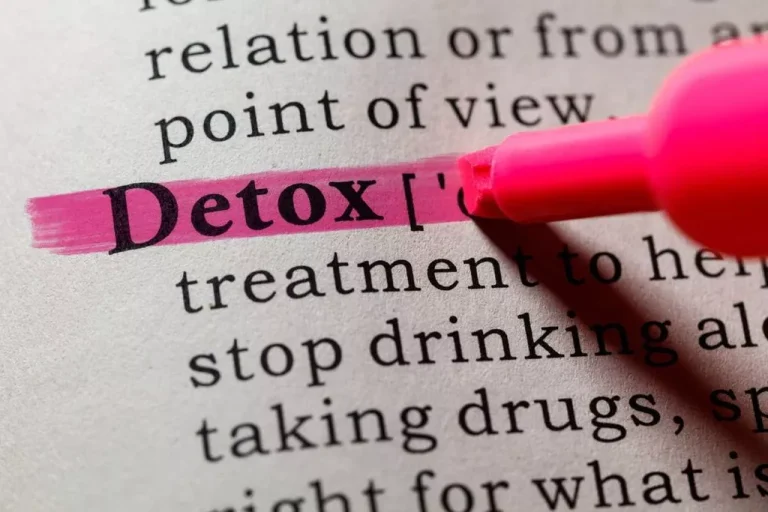
State-Funded Free Drug Rehab Program
There are also opportunities to defray the cost of treatment or to have it covered by another entity; for example, health insurance may, in some cases, cover all or most of the cost of treatment. Inpatient or residential treatment and alcohol rehab is the most intensive level of care, with around-the-clock monitoring and clinical management to alleviate alcohol withdrawal symptoms and provide structure. After the detox phase, the patient lives at the facility full-time while receiving therapy, group counseling, medication management, holistic therapies, and other services. The cost of inpatient alcohol rehab depends on someone’s treatment-related needs, insurance coverage, the facility’s amenities, the individual’s needs, and potentially other variables. AAC accepts most major health insurance providers, such as Kaiser Permanente, Anthem Blue Cross, and Aetna to name just a few.
- If you’re here seeking information for a friend or family member, we’ve also included resources on how to help a friend or family member, along with intervention strategies.
- Addiction treatments were once restricted to in-person meetings, but can now happen anytime and anywhere with a reliable internet connection.
- Thankfully, once enrolled, if you are seeking rehab for addiction, you will still be able to utilize your benefits to get treatment.
- Our alcohol rehab facilities serve communities from Florida to Washington, specializing in a range of addiction recovery services.
The Eluna Network provides various resources to support children affected by grief or addiction. Therefore, if one has a disability, is over the age of 65, or has other qualifying conditions that may allow them to get Medicare, they should attempt to apply for both Medicare and Medicaid. There are other options an individual can use to find local programs that are affordable. Oxford Treatment Center's outpatient program is located in a 12,000-square foot facility that provides a central space for holistic healing while recovering at home. When choosing an online therapy provider, we recommend that you read the company’s privacy guidelines before you sign up to better understand whether it is HIPAA-compliant and whether it shares any private information with third parties. There have been some concerns raised by the Federal Trade Commission (FTC) and several government officials about what user health information online therapy providers collect and what they do with any information they collect.
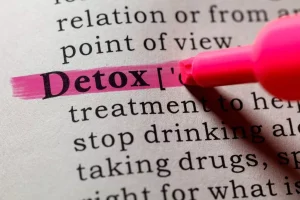
Finding these centers is often just a matter of talking to the leaders of these faith traditions to connect with the resources. Many of these programs are free of charge, but not all of them, so individuals should confirm before getting involved. Alternatively, call what is an addiction rehabilitation center The Recovery Village to speak with a representative to learn how alcohol rehab treatment is possible, with or without insurance coverage. After completing a residential (inpatient) alcohol rehab program, a patient who is stable in their sobriety may be transferred to a partial hospitalization program.
Our Approach to Addiction Treatment at California Prime Recovery
Our goal is to provide access to the largest repository of addiction information and the most accurate listings of treatment centers to help those suffering from chemical dependence. This chronic, progressive disease impacts millions of lives and changes them forever. Addiction rehabilitation is the fastest and most effective way to cure substance abuse. American Addiction Centers (AAC) owns and operates facilities at various locations nationwide to provide you or your loved one addiction and mental health care.
- Recovery services are provided in a day center, clinic, rehab facility, or other location, while the patient lives at home.
- The specific range of therapies used in inpatient rehab may differ between treatment centers and according to various patient needs but will likely fit within an organized daily schedule.
Compare the Best Alcohol Treatment Centers
We selected the Hazelden Betty Ford Foundation because it combined two of the oldest addiction treatment facilities to become the largest nonprofit provider of alcohol use disorder treatment. As discussed in part above, many of these rehab center options require that clients apply and be accepted to the programs based on certain qualifications. For free rehab, the main qualifying factor is usually a demonstrated inability to pay.
How to Pay for Alcohol Rehab Without Insurance
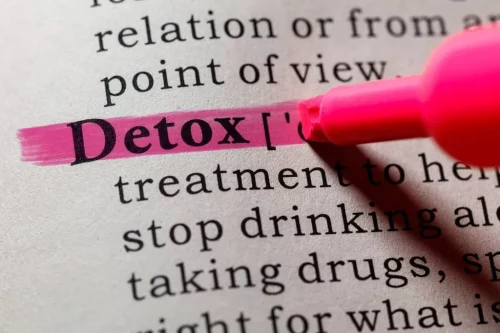
We also offer virtual treatment options for individuals who prefer to receive treatment from the comfort of their own homes, providing flexible treatment options to meet diverse needs. A treatment center should consider all of your unique needs to provide the best support possible.6 American Addiction Centers offers evidence-based https://ecosoberhouse.com/ alcohol rehab in locations across the country, so you’re never far from the help you need. Searching for recovery centers near me or addiction recovery centers near me can provide you with a list of local resources. Whether you choose a California recovery center or one in another state, the key is to start the journey toward healing. Recovery is possible, and with the right treatment and support, a life free from addiction can be achieved.
Rochester, NY Alcohol Rehab Centers
When it comes to overcoming addiction and achieving long-term recovery, drug recovery centers play a crucial role. These centers provide comprehensive mental health services and treatment programs that address both substance abuse and mental health conditions. For individuals struggling with addiction, starting treatment at a qualified treatment center can offer them the chance for a fresh start. This initial phase is crucial in the recovery process, emphasizing the importance of a supportive environment and access to various care options. Whether you are facing alcohol addiction, drug use, or another form of substance use disorder, rehabilitation programs and treatment options are available to help. Through evidence-based treatment, which combines substance use counseling with medical support, patients are given a path to recovery.
Adverse Health Consequences of Performance-Enhancing Drugs: An Endocrine Society Scientific Statement PMC
The members of the diuretic class of drugs vary greatly in structure, physicochemical properties and site and mechanism of action. In the 1990s the analysis of diuretics in doping (by LC-UV or GC/MS) was a challenge for anti-doping laboratories due to the heterogeneity of the substances included. Since the advent of robust and reliable LC/MS instruments their detection in urine samples is no longer a problem. Future goals of diuretic analysis include developing more efficient and more economical detection methods. Increasing the sensitivity of the methods and the number of compounds in the screen while decreasing the analysis time and cost to laboratories would be welcome improvements.

Our knowledge of orthopaedics. Your best health.

The Food and Drug Administration in the United States, the National Institutes of Health, and even the American Association of Clinical Endocrinologists all vouch on some level that human growth hormone is safe to take. This substance appears on the WADA code as a prohibited substance or method that runs against rules of fair play and character. Isn’t it time we look at the purpose of what an athlete is attempting to accomplish instead of how they take care of themselves? People negative effects of drugs in sport who follow the “spirit” of a sport will continue to do so, whether they take HGH or like to eat steak every night for dinner. Hitters like Sammy Sosa and Mark McGwire are often criticized because of their ability to hit a baseball further because of the real or perceived notion that they took drugs to do so. Even if they took performance enhancing drugs every day, that doesn’t change the fact that these men must hit the baseball in the first place to get a home run.
Lance Armstrong, doping and the illusion of control - The Conversation Indonesia
Lance Armstrong, doping and the illusion of control.
Posted: Mon, 21 Jan 2013 08:00:00 GMT [source]
Doping and anti-doping
Following this, we examine how groups have organized systems of doping using strategies, similar to those outlined above, that work to reduce harm to athletes and enable safer use of PEDs. Research has convincingly established that for some substances, particularly alcohol, athletes have higher levels of at-risk use than individuals https://ecosoberhouse.com/ not participating in athletics. Conversely, rates of use for many other types of drugs are lower among athletes than nonathletes. Nonetheless, it is important to focus on understanding and limiting drug use among athletes, considering the myriad negative effects of such use on this population at all competitive levels.
- Injuries are another reason why many athletes endanger their "clean" athletes' status, their will to return to competition can lead to compromises that can end their career.
- Basic behavioral economics principles indicate that the likelihood of substance use will increase with lower price and greater availability (Murphy, Correia, & Barnett, 2007).
- Participation in sports is more likely to produce performance anxiety and panic disorder, as well as phobic anxiety following an injury.
- Also, it has been our observation that people are less apt to disclose PED use than other forms of drug use, perhaps because doing so would acknowledge that their physical prowess is largely due to chemical enhancement (20, 21).
What should I do if I need to take medicine for a health reason?
WADA is the international independent agency that publishes the World Anti-Doping Code, which is the document harmonizing anti-doping policies in all sports and all countries.61 The Code was first adopted in 2003 and became effective in 2004. Beta blockers - these help a performer to keep calm, slow down the heart rate, reduce muscle tension, blood pressure and the effects of adrenaline. This has the effect of helping performers in target sports such as archery as they improve fine control and precise movements. Blood doping - this involves removing blood and then re-transfusing it a few weeks later after the lost red blood cells have been replaced. This method was infamously used by Lance Armstrong during the Tour de France. Cardiovascular fitness is enhanced in the short term as it leads to an increase in red blood cell count but there is a serious risk of infections, illness and increased potential for heart attack or blockage of a blood vessel as a result.
- In small doses narcotics have medical uses that include relieving severe pain and inducing sleep.
- Athletes might need prolonged anti-epileptics drug treatment and these drugs might have pharmacokinetic interactions with other drugs.
- PED use appears to be far more prevalent than is generally believed and is widespread among nonathlete weightlifters.
Nutritional supplements
Addiction Treatment Programs
- Here is how the top three mental health conditions can influence addiction in athletes.
- Athletes who had received doping sanctions were sometimes taking these sanctions, with their lawyers, to civil courts and sometimes were successful in having the sanctions overturned.
- Utilising such strategies in a policy context may begin to help foster sport enabling environments that are so far available only through illicit doping systems.
- The author(s) declared no potential conflicts of interest with respect to the research, authorship, and/or publication of this article.
- Finally, thiazide diuretics are derivatives of sulphonamides and can cause photosensitivity if exercising outdoors during midday hours.
Macklemore Opens Up About Sobriety and Relapsing During Pandemic
And that all comes from watching my mom and dad. Because every time I blew it on a diet, Monday was the day I would start over. This is such a sad story that happens time and time again. Without a purpose, something to live for, strive for, we wither up and die.
- When I talk about it, I get a spiritual reprieve.
- What would have changed the story for John?
- He gives addicted individuals the chance to see that it’s normal to experience highs and lows during their journey to recovery.
- If you don’t want to end up another tragic story like John, there is something you can do.
I need to be reminded of what it is I am supposed to be doing. When I get confused, all I have to do is look at my wall http://vppstroy.ru/klinicheskie-lechebnie-zavedeniya/kemerovskaya-oftalmologicheskaya-klinika-kakimi-avtobusami-doehat-s-avtovokzala-pokaza.php.html and I am reminded of what is really important in my life. My point here is not to say that any of these things are bad.
What certifications did this album receive?
Short-term side effects of cannabis use include memory loss, hallucinations and psychosis. Long-term use of the drug has been linked to temporary paranoia, suicidal thoughts and worsening of symptoms of schizophrenia. He has been a vocal supporter of the legalization http://wizardtop.ru/index.php?do=out&id=1024 of marijuana and has spoken candidly about his affinity for the drug. In 2015, he launched Leafs by Snoop, a line of marijuana strains. The following year, he began producing a show for MTV about two snake people who run a marijuana-delivery business.
“Vertigo” by Khalid is a softer, dramatic song that holds your attention. After a few listens, you will come to appreciate the stability it offers. Khalid speaks of the “mess” that his life has been and how he has missed much of its beauty. The song calls the listener to re-center themselves, something an addicted individual will benefit from hearing. In his song “Starting Over,” Macklemore sings of the relapse he experienced after nearly three years of recovery. The song details what happened and how he began working toward recovery again.
“One Day at a Time” by Joe Walsh
In songs and interviews, Jay-Z has discussed the ubiquity of drugs he saw while growing up in Brooklyn in the 1980s. The streets of New York were rife with illicit substances, and Jay-Z saw evidence of crack use everywhere. To combat the http://www.tvsubs.net/tvshow-1561-7.html influence of rap music on teen drug use, Herd recommended that parents monitor their children’s music. She said learning slang terms — such as “angel dust,” code for PCP — could help parents better detect their children’s substance use.
- Today, Schoolboy Q has left his drug-dealing and consuming days behind, focusing more on his music.
- They inspire me and remind me that I’m not alone on this journey.
- When we are kids, the world is a magical place.
- This question offers those suffering from addiction something to think about.
- Not just believing in God, but believing in possibilities.
Why You Need a Recovery Playlist + 22 Songs to Get You Started CV
It’s Tuesday and I already can’t wait for Monday to come. And guess what, they are still married today. That is perseverance and not something most people are willing to do. My parents would eat ice cream on Friday and start over on Monday. They would get into a fight on Thursday but then forgive each other on Monday. Monday was the official start day of the new diet around my house growing up.
Freed had never heard of Naloxone before paramedics used it to revive him after an overdose that nearly killed him. He’s been sober since, but said his lack of education at the time of his drug use spoke to the broader need for these community workshops. At the age of 25, Macklemore’s life was significantly impacted by his addiction, leading him to check himself into a drug rehab center in 2008. However, his journey to sobriety has not been without setbacks, as he admitted to relapsing amid the COVID-19 pandemic. Today, Schoolboy Q has left his drug-dealing and consuming days behind, focusing more on his music.
Rapper Sirah is leading a movement to better understand mental health in the music community
He belts powerful phrases like “Please release me” and “I choose to live.” These declarations provide hope to anyone listening no matter their current situation. “Gravity” by A Perfect Circle details what it feels like to experience the adverse effects of drug use. Vocalist Maynard James Keenan heartbreakingly http://www.kaermorhen.ru/modules.php?name=News&pagenum=7 sings about being controlled by addiction. In the song “Young Homie,” Chris Rene describes the clarity that he experiences since entering recovery. He sings that he’s managed to “put his fears down” and enjoys the encouragement from those around him as he strives toward staying sober.
When I feel lonely, I can find myself going down the rabbit hole of isolation. You would think that when I feel lonely my instinct would be to reach out to friends, but it is actually the opposite. My instinct is to pull away from people, embrace https://rufact.org/blog/2011/dec/31/samyie-ochevidnyie-otkryitiya-2011/ the loneliness and try to find comfort in it. “She Used to Be Mine” (Waitress) – Although past versions of ourselves may be lost, Waitress’s “She Used to Be Mine” shows that aspects of that self can still be recovered through life’s hardships.
Best Songs About Overcoming Drug Addiction
Finally, it is important to note that our self-worth should never come from social media numbers. Those numbers have nothing to do with http://narodinfo.ru/news/49288.html happiness or contentment. Our worth comes from being a creation of God. But we are comparing their years of work to our days of work.
6 Excuses for Not Going to Rehab And How to Overcome Them
It’s essential that rehabilitation services are fully staffed and resourced, with strong professional leadership, so that everyone who needs rehabilitation can get it when they need it. That is why people who experience a relapse after completing a treatment program are much more likely to experience an overdose. The best way to tell if going back to rehab after a relapse is necessary is to look at how severe the relapse was and consider the likeliness that a person will use drugs or alcohol again. Once the detox process is mostly complete, you’ll begin intensive therapy. The goal is to work through your trauma and mental health issues and learn better ways of coping with life.

According to American Addiction Centers, the steps leading to relapse occur in three stages². Since there is no “cure” for addiction and because those in recovery sometimes encounter setbacks, you may find yourself entering rehab a second, third, or fourth time. Try not to assume that because you’ve relapsed that treatment doesn’t work or that you’ve reached the end of the road.
What is the Standard Rehab Success Rate?
Knowing how to respond if a relapse happens is also incredibly important when it comes to maintaining long-term recovery. According to the United States Department of Labor, a substance use disorder may be considered a serious health condition in going back to rehab some circumstances. If you require inpatient treatment or ongoing treatment, your time off from work is protected by the Family Medical Leave Act (FMLA). In this circumstance, your employer cannot take action against you because of work absences.
- Let Elevate Addiction Services help you get the treatment you need to overcome addiction once and for all.
- If you qualify, you may be eligible for a modified work schedule or reduced hours to allow you to attend ongoing treatment when you go back to work after rehab.
- If the slip caused massive craving, but you’re not giving in, and you’re working a program of recovery again, inpatient treatment might not be needed.
- There are many different 12-Step programs are available, tailored to each individual’s religious style, reference, and cultural values.
- American Addiction Centers (AAC) is committed to delivering original, truthful, accurate, unbiased, and medically current information.
Many addicts mistakenly think that going to treatment alone will be enough to keep them sober. Another enemy of addicts is the fact that in early recovery, many addicts feel so good and so strong that they don’t believe relapse is possible. When a slip happens, they may feel so much remorse and https://ecosoberhouse.com/ disappointment that they feel the need to rush back into rehab to get help. A short stay in rehab can help to refocus and prevent a slip from becoming a relapse, one reason that so many addicts who slip will go back to a short-term rehab temporarily before heading back out into the world.
Preparing for Rehab: What to Know
It’s normal to experience stress or anxiety in the hours and days before rehab begins. Those in recovery can use the money saved from not buying drugs for countless other activities and events. The important thing is to remember that you don’t have to be high or drunk to enjoy life after rehab. Building recovery capital requires you to analyze the different areas of your life to identify how they can be modified to support the best version of yourself. In treatment at All Points North Lodge, our clinicians will work with you and use these categories to customize a support plan rooted in recovery capital. A relapse does not indicate personal failure or that your initial treatment cycle and support channels did not work.
They might be highly functional with their job or within their family, and the people around them might not notice the signs and symptoms. They might face unexpected stressors that they don’t know how to manage, even with the techniques they practiced in treatment. Although this statement may feel discouraging, this perspective is a tool that can help you control your addictive patterns. Continued awareness of the psychological and physiological effects of addiction will help alert you when it’s time to seek support and can prevent you from returning to past harmful behaviors.
Ways to Prepare for Rehab (Mentally & Emotionally)
This evidence should galvanise policy makers and commissioners in the UK to ensure access to high quality rehabilitation for those who need it. If you or your loved one have recently relapsed, going back to rehab may be the best option to getting back on the path to sobriety. It is vital for those experiencing relapse to know that it is perfectly normal and in no way means that they have failed or are not worthy of living a happy, sober life. In part, this is because rehab requires you to step away from your regular life.
Aaron Rodgers: "I'd love to come back this season" - NBC Sports
Aaron Rodgers: "I'd love to come back this season".
Posted: Tue, 24 Oct 2023 14:23:42 GMT [source]
Even if you attend on an outpatient basis, there are things you’ll need to set aside while you focus on rehab. We may receive advertising fees if you follow links to promoted websites. If you have relapsed after treatment, it does not mean you will never find lasting recovery or that it is worthless to try again. Call our Orange County inpatient rehab to get back on the road to recovery today. People in recovery may be disappointed that they can no longer attend parties or go to the bar with friends.
My first year sober: Why I did it and what Ive learned WBEZ Chicago
And that’s a 12-step thing as future tripping, where you start worrying about the future and what it looks like without alcohol. So I try not to say, I’m going to be sober forever. I just say right now, I don’t want to drink right now. It is not a coincidence that things are going well for me.
- During the first 6 months of sobriety, it is generally best to simply avoid obvious triggers.
- Or about clearer skin (my breakout-prone skin did not suddenly gain an influencer-level glow).
- Despite the differences between your recovery experience and others’, you can still rely on the support of your recovery circle to help you through any challenges you face during your first sober year.
- Before becoming sober, many people spend a lot of their time drinking or thinking about drinking.
- But she’s also thinking about how to incorporate non-alcoholic drinks in a way that’s not triggering to people who may want to gather in such a space.
And now I have these big full days, I have early mornings, I go to bed early, because that’s just what I like to do. And I filled that whole day with stuff that I want to be doing not dealing with a hangover or getting drunk. It’s, you know, what I dog hanging out with my kids, building my career, you know, things that I’m proud of. I don’t wake up and say, I hate myself anymore. Yeah, it’s like, that’s never gonna happen.
First Year Sober: What to Expect in Sobriety
For example, if you had friendships that were based around drinking, you might find yourself isolated from those individuals. It’s important to remember that the reactions of others say more about their own relationship with alcohol than they do about you and your choices. Trying out new sober activities and joining sober communities can help you create meaningful relationships with those who share similar interests and values.
I’ve developed friendships that are real for the first time in many years. My sober friends call to see how I am and I call them to see how they are. I don’t just call to talk about myself like I once did. This is where I knew I’d be put to the real test. It’s much easier to stay sober within the walls of a treatment center than it is back out in the ‘real world’—at least that’s how it appears at first. I was a prisoner to the drink, to my addiction to alcohol.
How to Manage Your First Year of Sobriety
I realize now that this was, in part, a way of giving myself an escape plan. If I didn’t stay sober, then I wouldn’t have to admit to anyone else that I failed at attempting to. But she’s also thinking about how to incorporate non-alcoholic drinks in a way that’s not triggering to people who may want to gather in such a space. While doing this mental math, it occurred to me that I didn’t want to spend my summer — nay, my life — doing these calculations before every social gathering. I didn’t want to get it “right” one Saturday just to mess it up the next. I didn’t want to continue to try to master alcohol — only to fail again and again.
- Major life changes can put a strain on people in early recovery, and the risk is that they might relapse.
- After all, you can't hang around your drug dealer or old drinking buddies and expect to remain sober for very long.
- And I never waited in line for 30 minutes to pay $10 for a beer or like had to go to the bathroom, constantly right?
- We came from very humble beginnings, and would love to tell you our story of success and recovery.
- Know that it will get easier as you move through treatment and explore why you were using drugs or alcohol in the first place.
- PAWS include difficulty in thinking clearly, managing emotions, recognizing stress, and sleeping restfully, as well as difficulty with physical coordination and memory.
- It’s how you feel and what you want.
I mean, where do I even start to thank you. You’re definitely the reason that https://trading-market.org/uk-construction-dives-amid-housebuilding-slump-and/ this ended up, all coming together. And I’m so glad I reached out to you.
t year sober
I want to be honest about everything no more lying about why I can’t remember a detail or why I’m late or why I’m tired. I want to be able to assess my life and goals with clarity and intentions that do not concern covering Alcohol tolerance Wikipedia my tracks are compensating for everything that alcohol is taking away from me. And that was before I even met you and got sober like that was what do I want to accomplish by getting sober and I have all of those things.
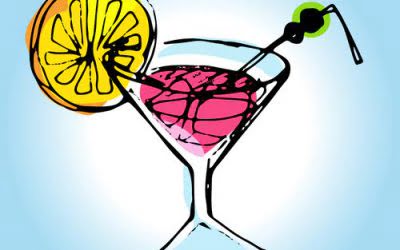
I began to share that it was my first day out of rehab…and I broke down. How was I going to go my whole life and not drink? https://g-markets.net/sober-living/intermittent-explosive-disorder-symptoms-and/ And while these questions were all addressed in rehab, they came racing back into my mind as I sat in the AA meeting.
Sobriety can be a particularly challenging pursuit for someone with an addiction like alcohol use disorder. Changing things in your life for the benefit of recovery is a good thing. The first few days to weeks (sometimes even months) you may feel like you are on Cloud 9, and then all of sudden “BAM” you just realized you can’t ever drink or use again. Suddenly, you feel as though your entire world has come crashing down. The good news is that no matter how you feel you a. You too can recover and stay sober long-term.
This is all the more reason to have a strong network of sober peers to fall back on. Fellow sober living home residents can offer support both when you’re feeling bad and when you’re feeling good. Moreover, studies on sober living homes indicate that the peer support people obtain while residing in them is a crucial factor in preventing relapses even years after graduation.
7 Mistakes To Avoid In Your First Year Of Sobriety
And, like, those relationships could circle back, they could resurface again and be stronger than ever, but everyone’s on their own journey. And this is mine, and that’s theirs. And I can’t push it, or internalize it, and probably don’t want to right now, like your relationships that Yeah, you know, build you up and make you feel good. Yeah, and so this way, it was like, Okay, I’m going to head into this.
My family was expressing more concern. I would make deals with myself to try to limit my drinking. I tried only drinking hard liquor because wine was my drink of choice. I tried only drinking on Fridays and on weekends. I tried cutting myself off at two drinks.
My First Year Sober (What it Was Like and What I Learned)
I have a friend who likes to say “Secrets keep you sick.” In other words, being honest and upfront makes life a lot healthier and a lot easier. Nothing is as freeing as admitting that you are struggling and need help. Keeping secrets in general is a stressful way of living.
How the travel industry is tapping into the mocktail market - Morningstar
How the travel industry is tapping into the mocktail market.
Posted: Thu, 26 Oct 2023 09:01:00 GMT [source]
That’s the change I notice a million times a day — me, really present in my life. In the sweet goodness of it and the sticky mess of it. In the pain and the joy and the mundane. I set myself free and that’s a change far bigger than any I could have imagined Art Therapy for Drug & Alcohol Addiction Recovery and one that will last whether or not the market for mocktails does. I was far from alone in seeing my drinking increase during the pandemic. Binge drinking during that time saw a 30% increase, with women imbibing more than their male peers.
First Year of Sobriety: What to Expect
These can be very personal depending on the individual. If certain family members are triggering, distance yourself. If a certain area of town is full of temptation, avoid it. Don’t attend work planned happy hours – especially the https://trading-market.org/uk-construction-dives-amid-housebuilding-slump-and/.
” It was a type of hell I wouldn’t wish on my worst enemy. I would wake up hungover daily, telling myself I wouldn’t drink that night. Then 5pm would roll around and I’d think, “What’s just one glass?
After 3 Months of Sobriety
So the choice that I make today is like I’m not going to get hammered today. I mean, I’m, to be completely honest, I lost friends. I did, I lost friends when I got sober. And that https://accountingcoaching.online/what-is-a-halfway-house-what-to-expect-in-halfway/ was a really difficult part of quitting drinking was watching those friendships fall away, and just being sad and grieving the loss of a friendship, that was really fun.

Stages of Alcoholism: Early, Middle, Late and End Stage of Addiction
The most destructive form of alcoholism is chronic alcoholism, an emotionally, socially and physically devastating disease. Alcoholism emerges from alcohol abuse, when there's a pattern of drinking despite negative consequences. Alcoholism and alcohol abuse are both categorized as alcohol use disorders—affecting people of all ages 3 stages of alcoholism and stages of life. The severity of the disorder lies on a spectrum, ranging from mild to severe dependence, also known as chronic alcoholism (although even a mild disorder can spiral out of control without early treatment). Late-stage alcoholism is also different from other stages of alcoholism because it’s challenging to treat.
You may want to find out if there are psychologists in your area who specialize in addiction and alcohol use disorder. If there is not a psychologist nearby, you may want to consider an online therapist. Telemedicine is flourishing in the field of psychology and psychotherapy. Going beyond telehealth is something called Prescription Digital Therapeutics, using a phone app to provide FDA approved and doctor-prescribed digital therapy. Digital therapeutics has the additional benefit of keeping you connected at all times to your doctor through your ongoing progress.
Alcoholic Recovery Stages
It can be dangerous to stop alcohol abruptly, and it’s safer to go through alcohol detoxification under medical supervision. With end-stage alcoholism, one of https://ecosoberhouse.com/ the biggest indicators is paranoia. The other signs can also be found in middle-stage alcoholism but people at the end stage became anxious and paranoid.
- We publish material that is researched, cited, edited and reviewed by licensed medical professionals.
- This can include hangovers, altercations with people when drinking, violence when drinking and blackouts.
- By this stage, their drinking is taking an obvious physical toll as well.
- Alcoholic dementia encompasses several different alcohol-induced neurological conditions that can affect thinking skills.
- You'll soon start receiving the latest Mayo Clinic health information you requested in your inbox.
Visible signs of alcoholism may become apparent during middle-stage alcoholism. The overwhelming need for the body to operate with alcohol in the system begins to put the disease in the driver’s seat. As alcoholism progresses, the cells in the body become more and more resistant to the short-term effects of alcohol. As a person continues drinking excessively, the cells will continue to adapt. Eventually, the presence of alcohol becomes the norm for the body, and the long-term damage continues.
Alcohol & Drug Rehab
They may attempt to rationalize their drinking and almost always begin hiding it from friends and family, leading to even greater damage to interpersonal relationships. There are factors that pop up again and again when determining who might have an issue with alcoholism. If you're in the "at-risk" population, it doesn't take much to become dependent on alcohol or other drugs.
The presence of scar tissue also impairs the body’s ability to clean toxins from the blood, control infections, process nutrients, and absorb cholesterol and certain vitamins. In addition to chronic health diseases and conditions, persons in the end stage of alcohol abuse may be at a heightened risk of falls and other accidents due to balance and coordination problems. Most often, when death occurs after a fall, it is due to bleeding in the brain and not the fall itself. End-stage alcoholism is very dark and people tend to lose hope after years of suffering.
Stages of Alcoholism: Early, Chronic and End Stage
One of the most glaring signs of burgeoning alcohol addiction is the development of tolerance. Tolerance is a state in which a person builds up a resistance to the effects of a substance, and therefore must consume increasingly higher amounts to produce the same results. It’s common at this point for alcoholics to have lost their jobs as well their friends and family. Even though alcohol has become a significant part of everyday life, early-stage alcoholics often deny that they have a problem and may be defensive about their drinking. They may also rationalize, or make excuses, for their behavior and insist they can stop drinking whenever they feel like it. But some people who drink face a risk of developing this chronic and progressive disease, which affects roughly 1 in every 8 Americans and contributes to about 88,000 deaths annually.
- There are many different types of therapy techniques, including cognitive behavioural therapy, one-to-one therapy, group therapy or holistic therapy.
- Alcohol use disorder (alcoholism) is a physical and mental addiction to alcohol.
- Once stabilized, the goal is to transition from detox, to treatment, to maintenance (practicing sober living by changing your life), to transcendence—the final step in the path to recovery.
- It is important that you undergo this stage of the recovery process in the comfort of a rehabilitation centre, surrounded by doctors and other medical professionals.
- His hobbies include physical fitness, reading, and social entrepreneurship.
Individuals may turn to alcohol as a way to cope with these conditions, leading to an unhealthy dependence on alcohol. Mental health issues are also common in the end-stage of problematic drinking. The person may experience depression, anxiety, and other mental health issues. Alcoholism is a condition that affects millions of people worldwide. It is a progressive disorder that has different stages, each with its own set of symptoms and consequences. Recognizing the stages of alcoholism is important for both individuals struggling with addiction and their loved ones.
As the disease becomes more severe, blackouts and loss of control can happen. Alcohol dependence also means that you have developed a tolerance to drinking. As a result, you may have to drink larger quantities to get “buzzed” or drunk. Drinkers leave the experimental stage when their alcohol consumption becomes more frequent. Instead of just drinking at parties once in a while, you may find yourself drinking every weekend. Drinking large amounts of alcohol at one time is dangerous, and can even lead to coma or death.

They may also experience cravings for alcohol, blackouts, or become dependent on alcohol to cope with stress and anxiety. According to the National Institute on Alcohol Abuse and Alcoholism (NIAAA), approximately 14.5 million adults in the United States had alcohol use disorder in 2019. It is crucial for individuals struggling with addiction to seek help from healthcare professionals and support groups to overcome this condition.
Cognitive behavioural interventions in addictive disorders PMC

However, the additive effect of these combined interventions, despite clinically intuitive expectations of their compatibility, and even synergy, has not received conclusive support. In the present narrative review, we offer an overview of CBT efficacy for https://ecosoberhouse.com/ adult AOD and consider some key variations in application as well as contextual (ie, moderators) or mechanistic (ie, mediators) factors related to intervention effectiveness. Specifically, we will examine what might be considered “classical” or “traditional” applications based on Marlatt and Gordon’s17 seminal work but will also consider some integrative applications such as CBT in combination with MI, CM, and pharmacotherapy. Finally, we will examine moderating and mediating factors that have been observed in studies of intervention efficacy. As such, we provide a summary of systematic reviews and meta-analyses, but some landmark trials are also described.

Can Cognitive Behavioral Therapy (CBT) Treat Alcoholism and Drug Addiction?
Outcome data did not indicate significant differences in cocaine use outcomes by group. People who have a substance or alcohol use disorder may often struggle with negative feelings or thoughts that make recovery more difficult. Because CBT focuses on identifying and replacing such thought patterns with more adaptive ones, it can help improve a person's outlook and support skills that support long-term recovery. The Affordable Care Act (ACA) mandates that insurance providers must cover treatment for mental health and substance use treatment.10 This means that your insurance plan is required to cover at least a portion of your care. The ACA applies to all insurance companies, including employer-sponsored coverage, Medicaid and Medicare, and marketplace insurance. Family therapy remains a “promising” intervention with polydrug users, family interventions, community reinforcement and CM approaches have been shown to be superior to drugs counseling and 12-step approaches.
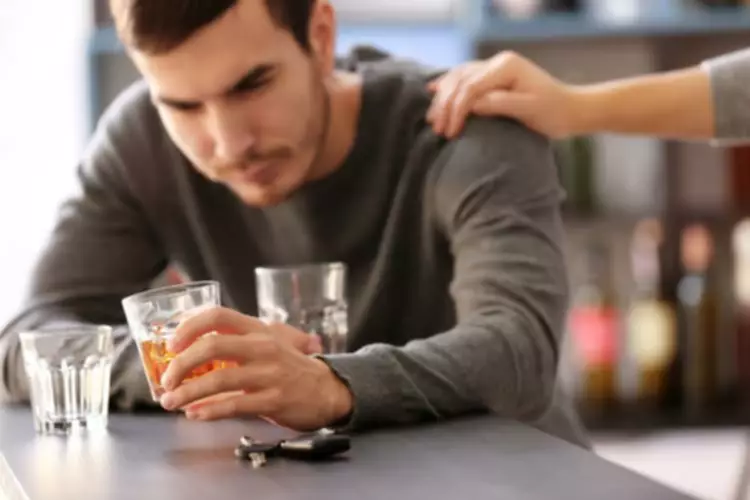
Alcohol treatment matching studies
CBT is a widely cbt interventions for substance abuse effective treatment approach for many people and can help you challenge negative beliefs about yourself and start to create a new worldview. Cognitive behaviour therapy (CBT) is a structured, time limited, evidence based psychological therapy for a wide range of emotional and behavioural disorders, including addictive behaviours1,2. CBT belongs to a family of interventions that are focused on the identification and modification of dysfunctional cognitions in order to modify negative emotions and behaviours. CBT for substance use disorders includes several distinct interventions, either combined or used in isolation, many of which can be administered in both individual and group formats.
- Modifying social and environmental antecedents and consequences another approach to working with addictive behaviours18.
- It is now believed that relapse prevention strategies must be taught to the individual during the course of therapy, and various strategies to enhance patient involvement and adherence such as increasing patient responsibility, promoting internal attributions to events are to be introduced in therapy.
- The hallmark of CBT is collaborative empiricism and describes the nature of therapeutic relationship.
- In early review, a robust benefit of combined CBT with other psychosocial therapies such as MI and CM was observed.
Product Reviews
- A comprehensive treatment regimen should encompass one’s mental, physical, and spiritual well-being, fostering healing from within.
- It can be used on its own or combined with other approaches that work together to support a person's long-term recovery.
- It’s changing the way you feel or act toward something by changing how you think about the situation.
- The principles of MI include expressing empathy through reflective listening, developing discrepancy between patients goals or values and their current behaviors, avoiding argument and direct confrontation, adjusting to client resistance and supporting self-efficacy and optimism.
- In conclusion, BIs can be an effective first level of treatment offered to drug and alcohol clients16 and because of their low cost and cost-effectiveness, BIs are consistent with a public health treatment approach in substance use disorders.
- CBT typically involves a number of distinct interventions—such as operant learning strategies, skills building, and motivational elements—that can either be used on their own or combined.
Thus, consistent support for CBTs putative mechanisms of action remain elusive, as it does for many interventions (Emmelkamp et al., 2014). Cognitive behaviour therapy is a structured, time limited, psychological intervention that has is empirically supported across a wide variety of psychological disorders. CBT for addictive behaviours can be traced back to the application of learning theories in understanding addiction and subsequently to social cognitive theories. The focus of CBT is manifold and the focus is on targeting maintaining factors of addictive behaviours and preventing relapse. Relapse prevention programmes are based on social cognitive and cognitive behavioural principles.
It can be used on its own or combined with other approaches that work together to support a person's long-term recovery. However, it is not the only option out there, so talk to your healthcare provider about what's available to decide what approach is best for your needs. As with other treatments for alcoholism and drug abuse, including pharmaceutical treatments, cognitive behavioral therapy works best when combined with other recovery efforts.
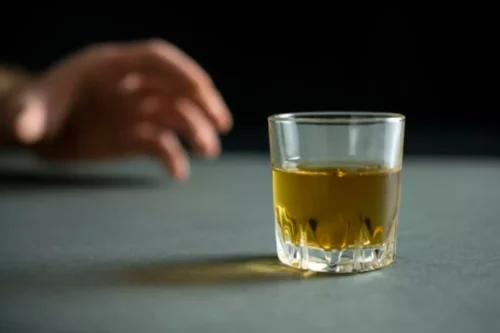
Create a file for external citation management software
Other efforts to increase access to CBT and other evidence-based treatments for SUDs are also underway.75-77 Future research focusing on methods to bridge the gap between theory and practice in a way that supports community clinicians so that systemic change can truly be effective is of particular importance. As this paper has reviewed, many effective behavioral techniques for the treatment of substance use have been identified; however, use of such techniques is often scarce or non-existent in service provision settings. As implied above, CBT for substance use disorders varies according to the particular protocol used and—given the variability in the nature and effects of different psychoactive substances—substance targeted. Consistent across interventions is the use of learning-based approaches to target maladaptive behavioral patterns, motivational and cognitive barriers to change, and skills deficits.
Comorbid psychiatric disorders
With regard to addictive behaviours Cognitive Therapy emphasizes psychoeducation and relapse prevention. Therefore, many of the techniques discussed under relapse prevention that aim at modification of dysfunctional beliefs related to outcomes of substance use, coping or self-efficacy are relevant and overlapping. Training in assertiveness involves two steps, a minimal effective response and escalation. When the minimal effective response (such as informing friends that “I do not drink”) is not sufficient to bring about change, the individual is instructed to escalate to a stronger response, such as warning, threat, involving others' support.

Functional Analysis
- ChoicePoint aims to improve the quality of life for people struggling with substance use disorder and mental health issues.
- We provide an overview of Cognitive Behavioral Therapy (CBT) efficacy for adult alcohol or other drug use disorders (AOD) and consider some key variations in application as well as contextual (ie, moderators) or mechanistic (ie, mediators) factors related to intervention outcomes.
- People who have a substance or alcohol use disorder may often struggle with negative feelings or thoughts that make recovery more difficult.
Stages imply a readiness to change and therefore the TTM has been particularly relevant in the timing of interventions. Matching interventions to the stage of change at which an individual is, can maximize outcome. The therapist therefore planned to improve his motivation for seeking help and changing his perspective about his confidence (motivational interviewing). Each of the five stages that a person passes through are characterized as having specific behaviours and beliefs. His therapist identified strategies to enhance his motivation, to help him engage in therapy, deal with craving, reducing social anxiety, assertiveness and beliefs and positive expectancies about alcohol use, and confidence or sense of self-efficacy in remaining abstinent. The wife was involved in therapy, to support his abstinence and help him engage in alternate activities.